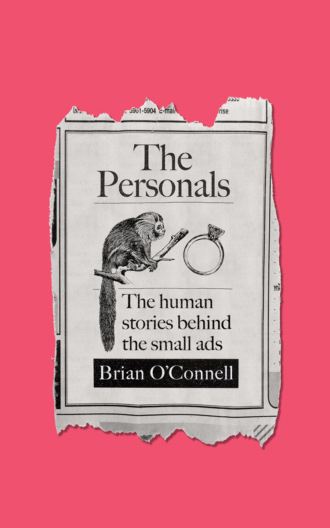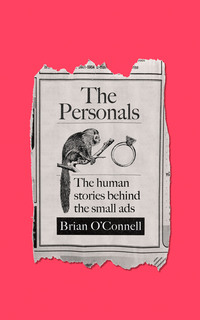
Полная версия
The Personals
The divorce finally came through seven years after Jean and her partner had hoped to get married. By this stage, organising a wedding that would keep everyone in each family happy was proving difficult to say the least. Also, both Jean and her husband had lost their jobs as the recession hit, and so their big dream wedding had to be shelved out of economic necessity.
These are the ripple effects of the downturn that still resonated many years after the so-called recovery had taken hold. It is almost impossible to calculate the whole impact of the recession – you can document the numbers: who left, the people out of work or the families who had their homes repossessed, but for years after the downturn, I met people like Jean who would tell me about the ways in which the economic tsunami (not of their making) had massively changed the course of their lives.
People have told me about the son or daughter in Australia they couldn’t visit for half a decade. Or the retirement plan that never materialised, or the family member languishing on a waiting list for five years for a hip replacement, because one of the first things to go after the crash had been their health insurance. How do you properly assess the cumulative impact of all those knock-on effects?
For some, the recession had a more positive impact ultimately, forcing them perhaps to go off and spend a month at the Ballymaloe Cookery School and do what they should have done 30 years earlier before the entry exams for the bank came up. In some cases, it helped people embrace humility, or discover empathy or form a kinship with people from a whole cross section of backgrounds which they might never have thought possible. I met them at Men’s Sheds, car boot sales, coming out of the repossession courts or, unfortunately, at coroners’ courts. They were all marked in some way by the events following the collapse of a bank many had probably never even heard of.
So after the collapse of Lehman Brothers bank in 2008, when Jean and her fiancé were talking about their dream wedding, perhaps with the three-day venue and the chocolate fountain and the dozen doves being released, their plans didn’t seem in keeping with the times. Both of them were out of work. Her husband had retrained and ended up starting at the bottom of his profession on minimum wage, trying to work his way up again. Jean says that they had both been on an upward curve financially before the recession. Once they lost their jobs, things began to slide very quickly. Soon they were in mortgage arrears and they continue to struggle to clear those arrears to this day. They face the prospect of losing their home.
‘I don’t know what’s going to happen,’ Jean tells me. ‘We’ve been paying half what we should be paying. We can’t do any more than that. It has had a huge impact on our lives. We don’t go out socially and in terms of holidays, we go camping for a week every year. I have a tent I bring with us and that’s our holiday. Financially, we are so much worse off since the recession, but thankfully my kids have grown up so it’s just us and the dog to look after.’
With money tight, and having lived together for quite a while, the big spectacular wedding was not going to work out. So what did they do? ‘We flew to [the Caribbean] and got married there,’ Jean tells me. ‘We took one suitcase and the whole thing cost us €3,800 for two weeks. I left the wedding dress I bought behind and ended up buying another dress for €400 – one that I could wear on the beach because I had outgrown the first one. It was absolutely magical.’
Feck off recession, in other words.
By the time Jean got married for the second time, she was well over 40. Her first marriage had lasted over a decade, and while she and her current husband have been married for several years, they have been together a lot longer. There’s a reason they had to wait so long to get married which I’ll come to, but looking back, Jean is now able to see clearly why her first marriage failed. ‘I was very young when I got married first time,’ she tells me. ‘Too young, to be honest. I was 19 years of age going on 20. I only knew him about eight months. My own mother got married at 17, so it was the done thing back then. I was in love and he was my first serious boyfriend.’
Jean’s father had died when she was 17. He had still been a young man. Looking back on it she says she endured a very controlled upbringing in which her father had a strong hand in her personal life, something that’s probably totally alien to today’s teenagers. This meant she had to be in bed most nights at 9 p.m. and had very little choice to do anything socially. So when her father died, she naturally responded to her newfound freedom.
Конец ознакомительного фрагмента.
Текст предоставлен ООО «ЛитРес».
Прочитайте эту книгу целиком, купив полную легальную версию на ЛитРес.
Безопасно оплатить книгу можно банковской картой Visa, MasterCard, Maestro, со счета мобильного телефона, с платежного терминала, в салоне МТС или Связной, через PayPal, WebMoney, Яндекс.Деньги, QIWI Кошелек, бонусными картами или другим удобным Вам способом.



